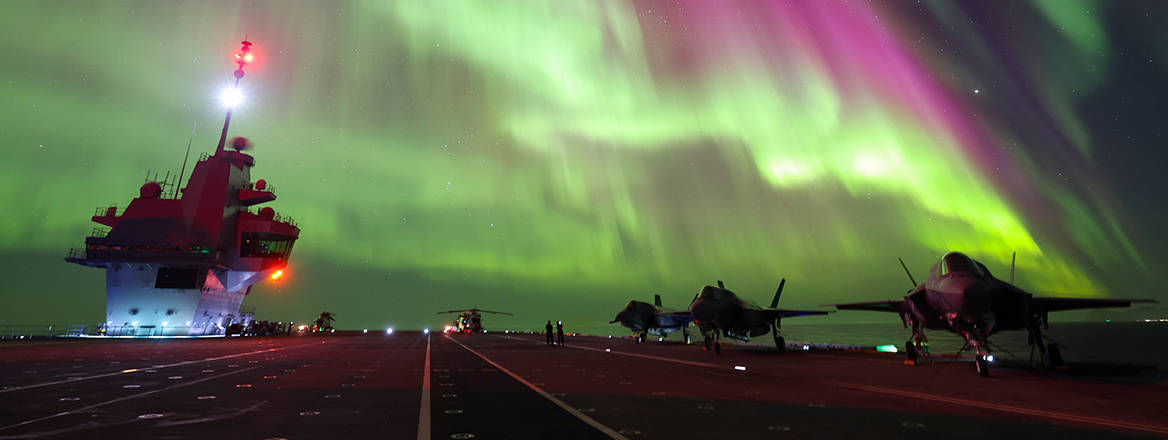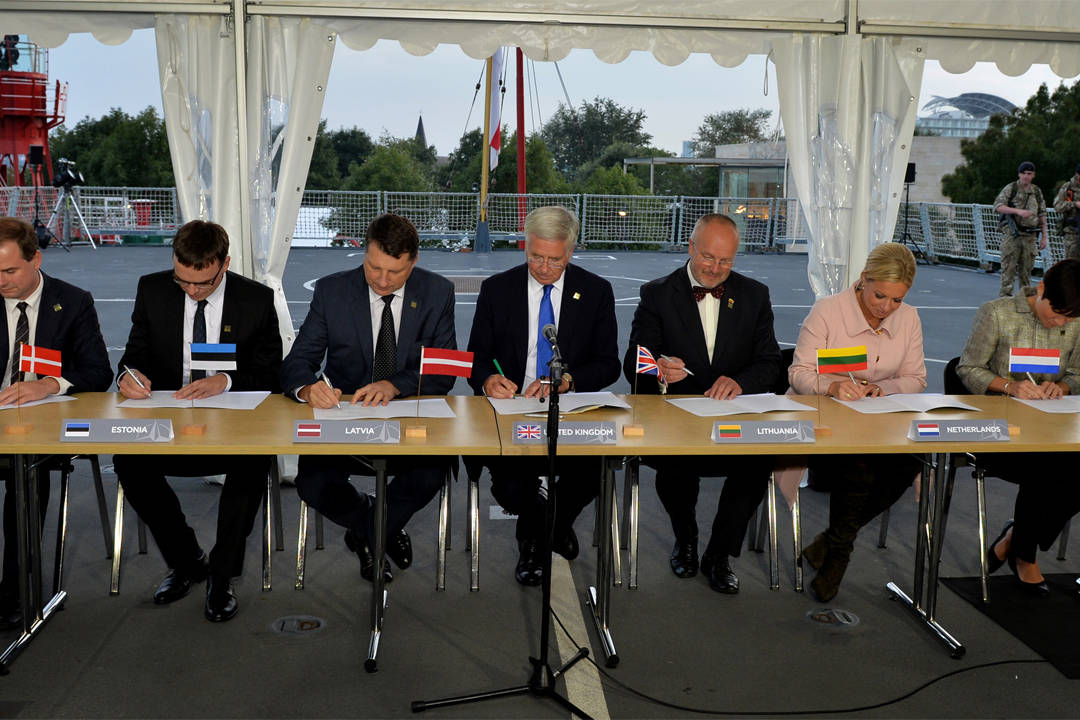The Joint Expeditionary Force and its Contribution to European Security
As the new UK government undertakes its Strategic Defence Review, this paper provides recommendations for the UK to strengthen the Joint Expeditionary Force to increase its value to NATO and best contribute to European security.
The Joint Expeditionary Force (JEF) is a UK-led, 10-member defence framework focused on northern Europe. In September 2014, at the NATO Wales Summit, the JEF signed its founding Letter of Intent to develop a rapidly deployable force to operate across the full spectrum of operations.
During its first decade, the JEF has made an important contribution to European security. Owing to its design and development, the JEF exhibits several comparative advantages over other European defence and security frameworks: it has political and military leadership, it is flexible and better able to respond to crises, and it has regional expertise and a combined military heft which is increasingly valuable to NATO.
Following the 2014 Russian annexation of Crimea and incursion into the Donbas, the JEF participants responded by collectively increasing their defence expenditure so that all members now meet the NATO 2% of GDP target (up from just one member – the UK), and established a command-and-control structure, annual military and ministerial exercises, and interoperability programmes.
The JEF’s established programme of work allowed it to be quick to respond to Russia’s 2022 invasion of Ukraine. It immediately developed a political dimension, through national Leaders’ Summits, which provided a unifying framework to advocate for the defence of Ukraine, pushed for a stronger unified position against Russia, and pressured other NATO members to step up. As such, it has collectively committed more diplomatic, military and humanitarian assistance to Ukraine than the rest of non-US NATO members combined.
Following these successes, in 2023 the JEF agreed a 10-year vision and with it an ambition to be a key framework within the future European security architecture. Through this vision, and via increased political engagement, the JEF has created expectations for itself, and for UK leadership of the JEF as a European leader within NATO.
Its second decade will be far more challenging that the first. European security has dramatically deteriorated since Russia’s invasion of Ukraine in 2022. While NATO is stronger, with two new members – Finland and Sweden – and ambitious new defence plans, it is operating in a more dangerous and volatile world. Of greatest concern for Europeans is the reliability of the US security commitment to Europe under the second presidency of Donald Trump. The US faces four converging adversaries (China, Russia, Iran and North Korea) across three theatres (the Euro-Atlantic, the Indo-Pacific and the Middle East), with the capacity to prosecute only one major war. At the NATO Washington Summit in July 2024, the Alliance labelled China a ‘decisive enabler’ of Russia’s war on Ukraine, while Iran and North Korea have been actively supplying weapons and ammunition to Russia, with North Korea in fact going further and sending an estimated 10,000 troops to counterattack Ukrainian forces in Kursk, Russia. As US priorities shift to the rise of China and its impact on Indo-Pacific security, in the coming years more will be demanded of the UK (as a leading NATO member) and the JEF to contribute to European security.
Within this geopolitical context, the JEF is at an inflection point. While it can celebrate successes over its first decade – improved interoperability, capability and capacity development, and support to Ukraine – it is yet to be seriously tested politically or operationally. There is a risk that without increased attention and resources the JEF will be unable to deliver on its self-imposed mandate, causing it to atrophy, which would amount to a serious loss of credibility for UK defence and security leadership in Europe. To avoid this outcome, it must be immediately invested in, both politically and militarily. As the new UK government undertakes its Strategic Defence Review, this paper provides recommendations for the UK to strengthen the JEF to increase its value to NATO and best contribute to European security.
Key Findings
- The JEF is a political and military power maximiser, and the UK benefits both politically and diplomatically from it – for a modest investment. The JEF provides a defence and security leadership opportunity for the UK alongside like-minded European allies and can draw on valuable military support.
- JEF members have gained increased UK defence attention and capabilities in northern Europe – which are best able to mitigate shortfalls in the event of US disengagement from Europe – and a seat at the table alongside a geopolitical heavyweight such as the UK, which assigns its nuclear forces to the defence of NATO.
- Since 2014, JEF members have delivered an average real-terms defence expenditure increase of 150%, compared to 108% for the rest of NATO’s European members. However, the UK has delivered the lowest increase. When assistance to Ukraine is measured as a percentage of GDP, while the JEF members come out on top, the UK is ranked ninth of the 10 JEF members.
- The JEF is a vanguard military grouping within NATO that provides a model for the Europeanisation of the Alliance to increase transatlantic burden-sharing. All JEF members meet or have exceeded both the NATO defence investment pledge of 2% of GDP and the guideline of 20% on equipment expenditure as a share of defence expenditure.
- Support for Ukraine has become a major political output of the JEF. The 10 JEF members have committed $11.1 billion more aid to Ukraine than the 18 remaining European NATO members. When Ukraine assistance is measured as a percentage of GDP (2021 figures), the top 10 countries include eight JEF members.
- The JEF is ideally placed to accept the increased burden-sharing that Europe is set to encounter in the coming years, especially following the war in Ukraine and Trump’s re-election.
WRITTEN BY
Ed Arnold
Senior Research Fellow, European Security
International Security



